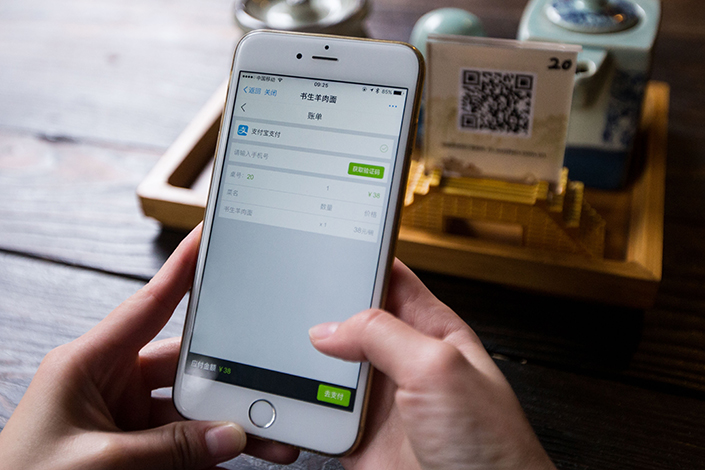Alibaba’s Koubei Serves Up New Restaurant Services in Quest for Diners’ Tummies

(Beijing) — Alibaba affiliate Koubei is elbowing rivals for a bigger piece of the restaurant pie.
Koubei will reserve its users a table, secure a spot in line at no-reservation restaurants to reduce wait times, place orders in advance, and offer deals through special promotions.
Previously, Koubei was known mostly for its pay service at 3 million shops and restaurants, offered through mobile wallet Alipay, that allows its users to directly withdraw money owed from their bank accounts to settle bills.
QR codes will take Koubei users to restaurants’ virtual storefronts. Koubei will offer similar services for photography studios — very popular with young people in China — and hair salons.
“The only way to draw more user traffic is by harnessing the entire transaction process,” Koubei Senior Vice President Chen Sheng said. “What we can do with payment, where we have been focusing, is very limited.”
The move is Koubei’s most aggressive since its latest $1.1 billion financing round, as it takes on well-established “on-demand” players like Dianping and WeChat’s service accounts, which already were offering similar services.
Alibaba Group Holding Ltd. founded Koubei more than a decade ago, but it didn’t go into full operation until June 2015, when the e-commerce giant and Ant Financial Services Group, its former financial affiliate and the operator of Alipay, jointly injected 6 billion yuan to restore the brand.
After its revival, Koubei moved in on food deliveries, but has had little success: As of the second quarter of last year, more than 90% of the market was owned by the three major takeout services — Baidu, Meituan and Ele.me — according to figures from consulting firm Analysys
A year ago, Koubei gave up directly competing in restaurant delivery services. That area is being covered by Ele.me, a meal-delivery service that Alibaba invested $1.25 billion in for a 28% stake.
In September, Koubei CEO Fan Chi described a new business path that will focus more on added-value services to help merchants better understand and target their users, instead of using costly subsidies and group-buy deals.
Contact reporter April Ma (fangjingma@caixin.com)

- 1Cover Story: China Carves Out a Narrow Path for Offshore Asset Tokenization
- 2Drownings Shake Chinese Enthusiasm for Travel to Russia
- 3Over Half of China’s Provinces Cut Revenue Targets
- 4Li Ka-Shing’s Port Empire Hit by Forced Takeover Amid Panama Legal Dispute
- 5In Depth: China’s Mutual Fund Industry Faces Overhaul After a Banner 2025
- 1Power To The People: Pintec Serves A Booming Consumer Class
- 2Largest hotel group in Europe accepts UnionPay
- 3UnionPay mobile QuickPass debuts in Hong Kong
- 4UnionPay International launches premium catering privilege U Dining Collection
- 5UnionPay International’s U Plan has covered over 1600 stores overseas





